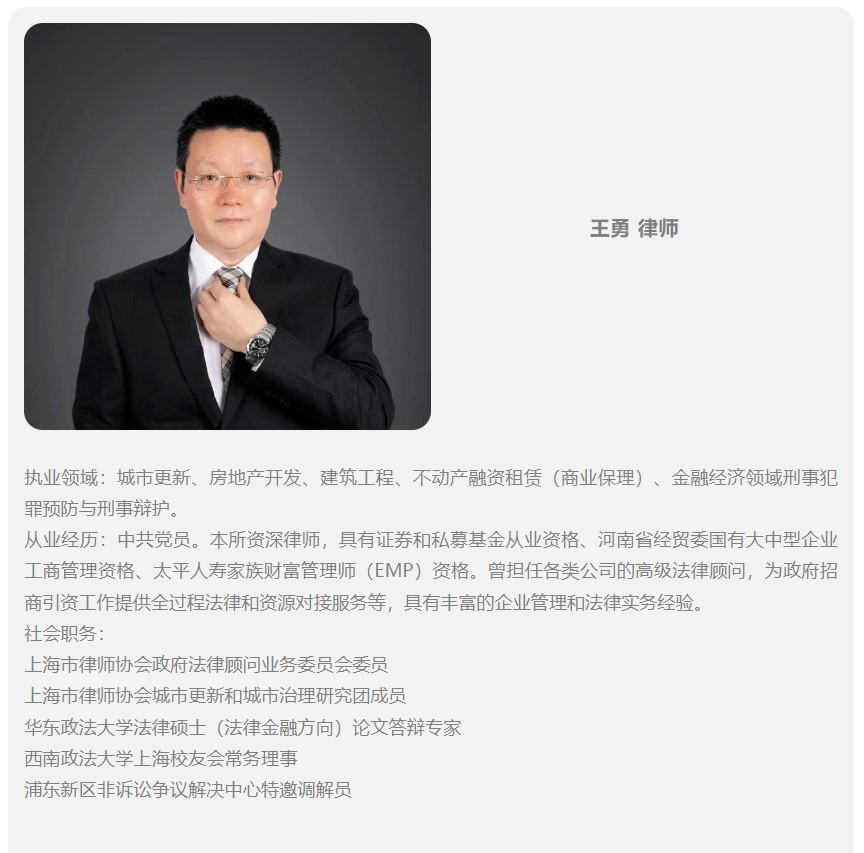

In the law school, we painstakingly discuss whether "existence is reasonable", but there are always diverse views and it's hard to reach a consensus. Civil contracts abide by the voluntary principle of autonomy of will. As lawyers, we can't eliminate or put an end to a certain phenomenon, but we can choose appropriate clients and help them, based on the autonomy of will that doesn't violate the effective legal norms, to control risks from a professional perspective. The issue of buying a house under someone else's name is of great value and significance for discussion. In the TV drama "All Is Well", Su Daqiang, who had become wealthy, for various reasons, as the actual investor, bought a house in the name of others and registered the ownership of the real estate under the name of the person whose name was borrowed. At the same time, both parties orally or in writing agreed that the actual investor Su Daqiang would enjoy the ri
ghts and interests of the house (possession, use, income, and disposition).
Although there is a joke that "you won't read a book unless it's borrowed", no one would take the risk of violating the "public notice of real rights" to register their own real estate under others' names unless they had no other choice. So here comes the question. Is a contract for buying a house under someone else's name invalid by default? In practice, this issue is handled differently. If a house under the name of others is borrowed to buy affordable housing, the contract will be invalid. If a general commercial house or second - hand house is bought under the name of others, it doesn't lead to the invalidity of the contract. The High People's Court of Beijing also stipulates that a "non - support" judgment is made when the case involved in litigation is heard. However, there is a huge difference between "non - support" and "contract invalidity". Have you ever heard of the saying "the mountain seems near, but it's a long way to go on horseback"?
Therefore, for the validity of buying a house under someone else's name, the following factors need to be focused on: In what scenarios is it necessary to buy a house under someone else's name? Whose name is used for the house - buying? How to avoid the risk once the invalidity is exposed?

(Photo by Tang Rui) I. Various Scenarios of Buying a House under Someone Else's Name
Scenario 1: Su Mingcheng buys an affordable housing under the name of his cousin.
Scenario 2: Su Mingyu buys a house under the name of her aunt who has a Shanghai hukou.
"Specific identity is a kind of effective intangible asset." The main motivation for buying a house by borrowing a specific identity is to avoid the housing purchase restrictions brought about by identity, so as to enjoy a lower price, a lower down - payment loan amount, and a longer loan term.
Scenario 3: Lao Meng, the president of Zhongcheng Group, buys a house under the name of Su Mingyu. The calculating Lao Meng may have the motivation of transferring property or evading debts.
Scenario 4: A certain official buys a house under the name of his nephew.
Scenario 5: Su Daqiang and his wife buy a house under the name of Su Mingcheng. The motivation for parents to buy a house under the name of their children may be to make their children be filial, or to save various costs that may occur in the future, such as those related to gifts, sales, and inheritance.
Scenario 6: Su Daqiang buys a house under the name of Shi Tiandong, the person who has a legacy support agreement with him.

(Photographed by Tang Rui) ### Legal Risks of Buying a House under Someone Else's Name
**First, the contract for buying a house under someone else's name is confirmed to be invalid**
The agreement for buying an affordable housing, such as the one in Scenario 1, under someone else's name is generally recognized as invalid because it violates relevant policies and regulations and infringes on the interests of other home - buyers who meet the purchase qualifications.
In judicial practice, the court will conduct a more detailed review and differentiation of the contract for buying an affordable housing under someone else's name. The contract for buying a house under someone else's name can be recognized as valid if the following conditions are met: (1) The original housing purchase contract of the affordable housing bought under someone else's name was signed before April 11, 2008; (2) The parties clearly agree to handle the transfer registration of the housing ownership after the expiration of the restricted trading period, or the housing has met the trading conditions before the end of the court debate in the first instance; (3) The registrant did not obtain the purchase qualification through a lottery. Such a contract for buying a house under someone else's name can be recognized by the court because it does not harm the public interest.
**Second, it is difficult to determine the fact of buying a house under someone else's name**
Buying a house under someone else's name often occurs among relatives such as uncles and nephews, aunts and nephews, or among friends with an adopted - kinship or sworn - brother relationship, or between superiors and subordinates. In short, it is based on a kind of trust. For this reason, in practice, it is not common to sign a written agreement. When the person whose name is borrowed does not recognize the relationship of buying a house under his/her name, according to the regulation of burden of proof, "whoever claims, shall prove", the person borrowing the name needs to prove the existence of the relationship of buying a house under someone else's name. The person borrowing the name needs to keep the investment certificates, the possession of the real estate certificate, and other facts that are sufficient to form a complete chain of evidence. (The first key point of risk control)
**Third, the person whose name is borrowed maliciously disposes of the house, and the house cannot be recovered or its integrity is restricted**
Situations such as the person whose name is borrowed directly selling the house, setting a mortgage on the house, or the house being sealed up due to the debts of the person whose name is borrowed. Based on the value orientation of protecting transaction safety, the law will give priority to protecting the rights of the counterpart. It is necessary for the person borrowing the name to set up counter - guarantee or counter - mortgage measures for prevention. (The second key point of risk control)
As lawyers, we also need to remind everyone that in the case of real estate inheritance, the person borrowing the name has to face the inheritance matters of the target real estate after the death of the person whose name is borrowed. In view of this, it is also necessary to consider: when to change the name of the target real estate and to whom. At this time, buying a house under someone else's name is bound to make the legal relationship more complex, and the risk coefficient will rise again.
Whether buying a house under someone else's name is "all good", I believe everyone will have a clear idea by now.

